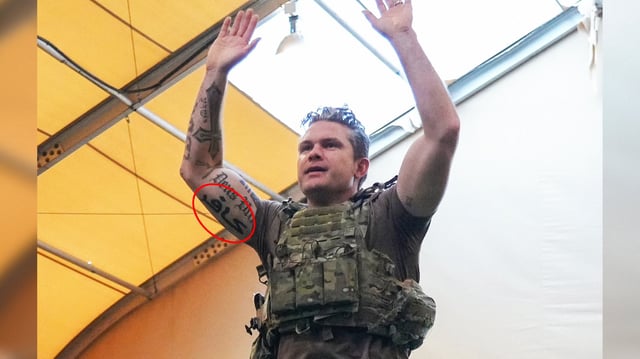Overview
- Pete Hegseth's new tattoo, featuring the Arabic word 'kafir,' meaning 'infidel' or 'nonbeliever,' has been criticized as a symbol of Islamophobia by advocacy groups.
- The tattoo is positioned below another tattoo reading 'Deus Vult,' a Crusader-era slogan associated with far-right ideologies, intensifying concerns about anti-Muslim sentiment.
- Muslim advocacy organizations, including the Council on American-Islamic Relations, have condemned the tattoo as hostile and inappropriate for a high-ranking U.S. official.
- This controversy coincides with ongoing scrutiny of Hegseth, including allegations of mishandling sensitive military information in a Signal group chat.
- The Department of Defense has not yet issued an official response to the tattoo controversy or the calls for Hegseth's resignation from some lawmakers and activists.



